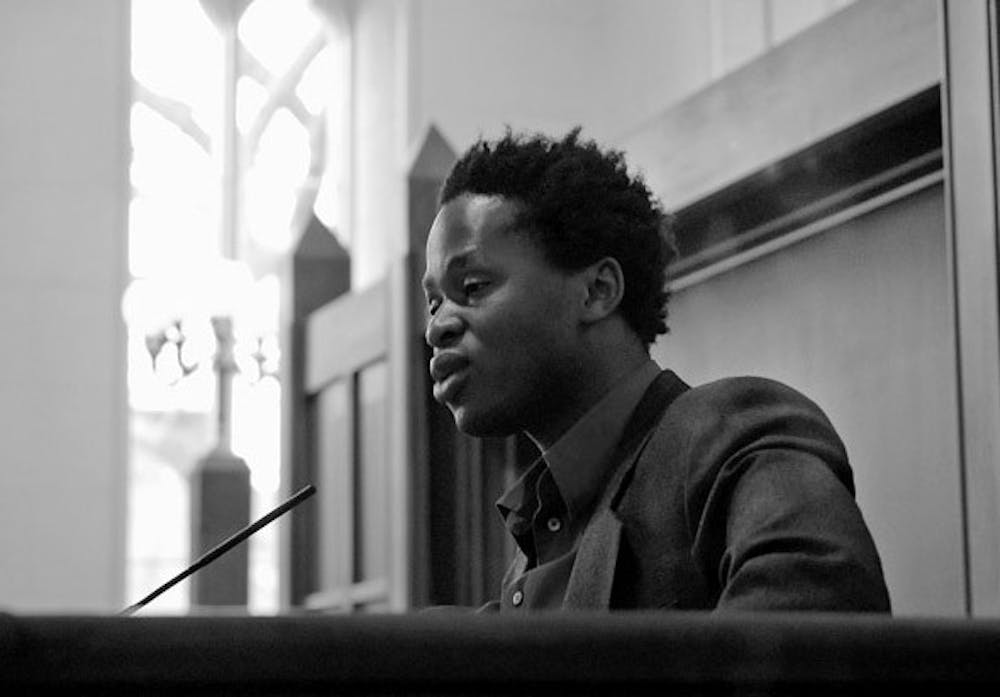If you only have a vague idea of the location and politics of Sierra Leone outside of what was presented in the movie Blood Diamond, you're not alone. But there's a lot more to this small West African country than Hollywood drama depicts.
Last night, the International Relations program hosted Ishmael Beah, a former child soldier from Sierra Leone and author of the highly acclaimed book A Long Way Gone: Memoirs of a Boy Soldier.
Beah was forcibly coerced into the government army at the age of 13, after his parents and two brothers were killed. He fought for three years before he was released by the army and was then sent to a UNICEF rehabilitation program, where he began an ongoing recovery from his experiences.
Beah moved to New York in 1998, where he enrolled in high school. He later graduated from Oberlin College with a bachelor's degree in political science. Beah is a member of the Human Rights Watch Children's Rights Division Advisory Committee and has done interviews for a number of media outlets, including The Daily Show, The New York Times, Time Magazine, USA Today and Newsweek.
Since coming to America Beah has worked to understand the causes of the civil war in Sierra Leone and, most importantly, what can be done to prevent similar events from happening.
"When I first came to the United States," Beah said, "it was frustrating because not many people knew about Sierra Leone, and even fewer people were aware of the war. When the media finally started covering the conflict in the late 1990's, a lot of people equated the country with madness due to the sensationalism of the violence there."
Beah does much to correct misconceptions in his book, which gives a genuine account of the conflict as he experienced it. In writing about the war, Beah said, "I knew that I needed to stay away from political things. When I was fighting, I didn't even know who the current president was. I wanted to focus on how I felt as a child during the war to create the necessary human contact that is often overlooked."
The book shows how children are dragged into conflicts, but Beah provides living proof of the possibility of recovery for these children. Beag himself is first to admit that recovery from such traumatization is not easy, but "Today, I'm at peace with myself. Just waking up and knowing I'm safe is enough for me to go on with my day."



